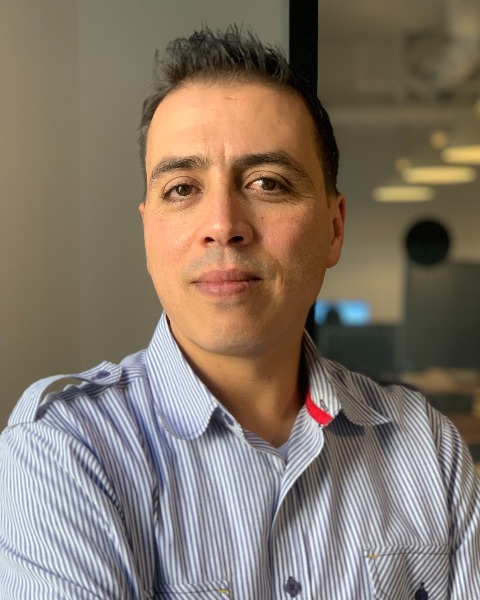Networking
Smart Manufacturing
Smart Manufacturing Reception and Live Poster Session
Scalable Detection of Unknown Defects in Wafer and Photomask Inspection Using AI
Wednesday, October 8, 2025
5:15pm - 6:30pm MT
Location: Smart Manufacturing Pavilion Theater, North Building, Lower Level, Expo Floor

Tareq Aljaber
CEO & Founder
Averroes.ai Inc.
San Mateo, CA, United States
Poster Presenter (SMfG)(s)
As semiconductor nodes scale below 7nm, detecting unknown and emerging defects is increasingly critical for yield optimization. Traditional inspection systems, primarily based on supervised learning, are limited by the scope of pre-labeled datasets and often fail to detect novel defect types. To address this, the Averroes.ai Research Team developed an unsupervised learning framework for high-resolution anomaly detection in photomask and wafer inspection.
The system was trained on only 2000 golden plate photomask images spanning multiple design nodes and product families, using deep autoencoders and contrastive learning to model normal pattern variation. A cascaded architecture was employed, where anomalies flagged by the unsupervised front-end are further classified by supervised models trained on known defect taxonomies.
In a six-month deployment at a high-volume photomask facility, the system detected multiple yield affecting novel defect signatures with 95.3% sensitivity to unknown anomalies, improved defect coverage by 23% over baseline, and reduced false rejects by 42%. Known defect classification exceeded 98% accuracy. The same framework can be applied to wafer-level inspection using identical architectures and pipelines, demonstrating scalability across the semiconductor manufacturing process.
The system was trained on only 2000 golden plate photomask images spanning multiple design nodes and product families, using deep autoencoders and contrastive learning to model normal pattern variation. A cascaded architecture was employed, where anomalies flagged by the unsupervised front-end are further classified by supervised models trained on known defect taxonomies.
In a six-month deployment at a high-volume photomask facility, the system detected multiple yield affecting novel defect signatures with 95.3% sensitivity to unknown anomalies, improved defect coverage by 23% over baseline, and reduced false rejects by 42%. Known defect classification exceeded 98% accuracy. The same framework can be applied to wafer-level inspection using identical architectures and pipelines, demonstrating scalability across the semiconductor manufacturing process.
